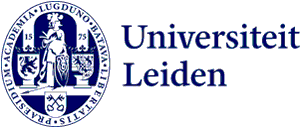
Helping people live healthier lives? A game may be the answer
The LUMC, Leiden University and The Hague University of Applied Sciences want to help health professionals support behaviour change in the population. Such change would help people live healthier lives and reduce their risk of disease. The Municipality of The Hague is supporting this educational project with a 50,000-euro grant.
Leiden University and the LUMC’s Health Campus The Hague want to promote a healthy life expectancy for all. They are working from different academic and clinical perspectives and in collaboration with regional partners to achieve this. Promoting a healthy life expectancy involves preventing disease by helping people get more exercise, eat a healthier diet or take care of their mental health, for example.
Behaviour change like this is not easy. People often need help from health professionals, care workers, community sports workers and others to change their lifestyles. ‘These professionals in turn are often looking for behaviour that will help them connect with people on this issue. The right tone, manner and tools’, says project leader Irene Slootweg from the LUMC. ‘Because well-meaning advice can easily come across as condescending, for example.’
Professionals therefore first need to support before they can encourage others to change their behaviour. Gezond Gelukkig Den Haag (Happy, Healthy, The Hague, a partnership between the LUMC, Leiden University, The Hague University of Applied Sciences and others) wants to help.

Testing collaborative games
In 2024, the partnership is going to look at whether two collaborative games − Game2Connect and het Samenwerkingsspel (The Collaboration Game) − are good tools for this. They are doing so in the project ‘Alle spelers aan bo(o)rd ter bevordering van positieve gezondheid’ (‘All players on board in promoting positive health’.) The project has received support in the form of a 50,000-euro grant from the Municipality of The Hague.
Game2Connect is a board game with QR codes from a digital item bank. It was developed by Maastricht University and focuses on topical issues. Het Samenwerkingsspel, developed by Tina van Wouw as part of her PhD, is a roleplay-based simulation game. Both use game-based learning to increase people’s knowledge about health. They also get professionals and experts by experience to reflect on their own roles and other interests and roles within interprofessional collaboration.
Insight into behaviour change
‘At present, it is unclear whether these games foster interprofessional collaboration, network development and knowledge sharing about positive health’, says Sanne de Vries from The Hague University of Applied Sciences. ‘In this project, we want to capture people’s experience of the two games and discover the games’ effects within networks of professionals and experts by experience in The Hague.’
‘I’d like us and the Faculty of Social and Behavioural Sciences to have developed a clear questionnaire for professionals by the end of the year. This would allow you to visualise, evaluate and stimulate behaviour change for lifestyle education’, says Slootweg. ‘And it would be fantastic if we could use one or both of the board games within Gezond Gelukkig Den Haag. That parties who are going to work together would visit the Gezond Gelukkig Den Haag website and use the board games to improve their collaboration and learn more about positive health.’
The project’s core team is starting by looking for suitable participants. ‘That would ideally be an existing group of professionals and experts by experience who already know each other, for example physiotherapists and their patients’, says Slootweg. ‘We are looking for a group of eight to ten participants to test the games.’
Text: Jan Joost Aten
Images: Sanne de Vries, De Haagse Hogeschool
Collaborate with Population Health Living Lab the Hague
Leiden University’s Population Health Living Lab The Hague interdisciplinary research programme focuses on the health of a group of people rather than of an individual. The more medical data you collect about the health of certain groups of people − for example, people living in the same city or neighbourhood − the more you can learn about how the long-term health of people in this group will evolve. Would you like to find out more or collaborate with us? Please contact initiators Mattijs Numans and Egbert Vos.
